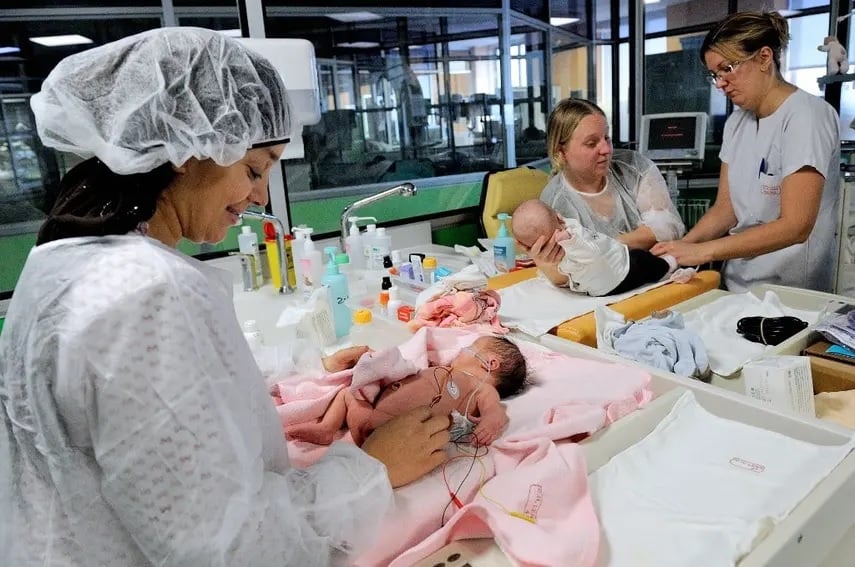France recorded 678,000 births last year, down 7% from 2022 and down 20% since peaking in 2020, INSEE, a research agency under the French Ministry of Finance and Economy, said in its annual census report.

France's birth rate is at its lowest level since the end of World War II. Photo: AFP
For decades, France has been different from other European countries in avoiding the decline in birth rates seen in Germany, Italy and Spain.
Traditionally, demographers have attributed this to France's generous health and childcare systems, as well as tax breaks and other benefits for having children, especially three or more.
This has helped mitigate the impact of an aging population while contributing to the country's long-term growth prospects, increasing productivity and labor force participation.
“France will only be stronger if it restores its birth rate,” Mr Macron said at a press conference. He added: “A new, better-paid parental leave scheme will allow both parents to be with their children for six months if they wish.”
In addition to basic maternity leave, parents in France can now take additional leave of one year, renewable twice.
INSEE said the average number of children per mother fell last year to a three-decade low of 1.68 from 1.79 in 2022. In 2021, France had the highest birth rate in the European Union along with the Czech Republic at 1.83.
The 2023 figure is not only lower than the 2.2 level generally considered necessary to maintain population levels in developed countries, but also lower than the 1.8 births estimate that was the basis for the controversial 2023 pension reform.
That could mean that if birth rates remain at 2023 levels, the reform will not reduce the pension deficit as planned.
However, the birth rate could recover in the coming years as those born between 2000 and 2010 start having children, according to researchers at INSEE.
In an Opinionway poll of 11,000 people, two-thirds of childless people said they wanted children while one in five parents said they wanted more children.
The most common reasons people gave for not having more children were concerns about the economic , social and climate outlook. About 28% said raising children cost too much.
The successive crises caused by the COVID-19 outbreak, high energy prices and record inflation have taken a heavy toll on French households, according to a monthly survey by INSEE.
Mai Anh (according to Reuters)
Source


![[Photo] National Assembly Chairman Tran Thanh Man attends the VinFuture 2025 Award Ceremony](/_next/image?url=https%3A%2F%2Fvphoto.vietnam.vn%2Fthumb%2F1200x675%2Fvietnam%2Fresource%2FIMAGE%2F2025%2F12%2F05%2F1764951162416_2628509768338816493-6995-jpg.webp&w=3840&q=75)


![[Photo] 60th Anniversary of the Founding of the Vietnam Association of Photographic Artists](/_next/image?url=https%3A%2F%2Fvphoto.vietnam.vn%2Fthumb%2F1200x675%2Fvietnam%2Fresource%2FIMAGE%2F2025%2F12%2F05%2F1764935864512_a1-bnd-0841-9740-jpg.webp&w=3840&q=75)









































































































Comment (0)